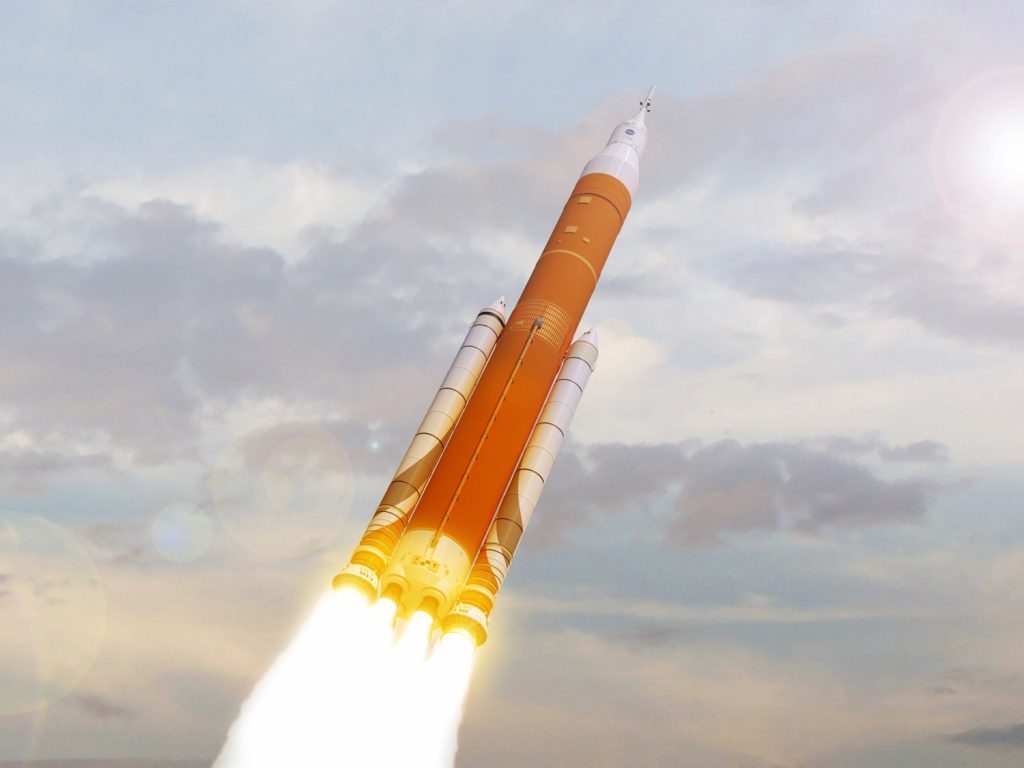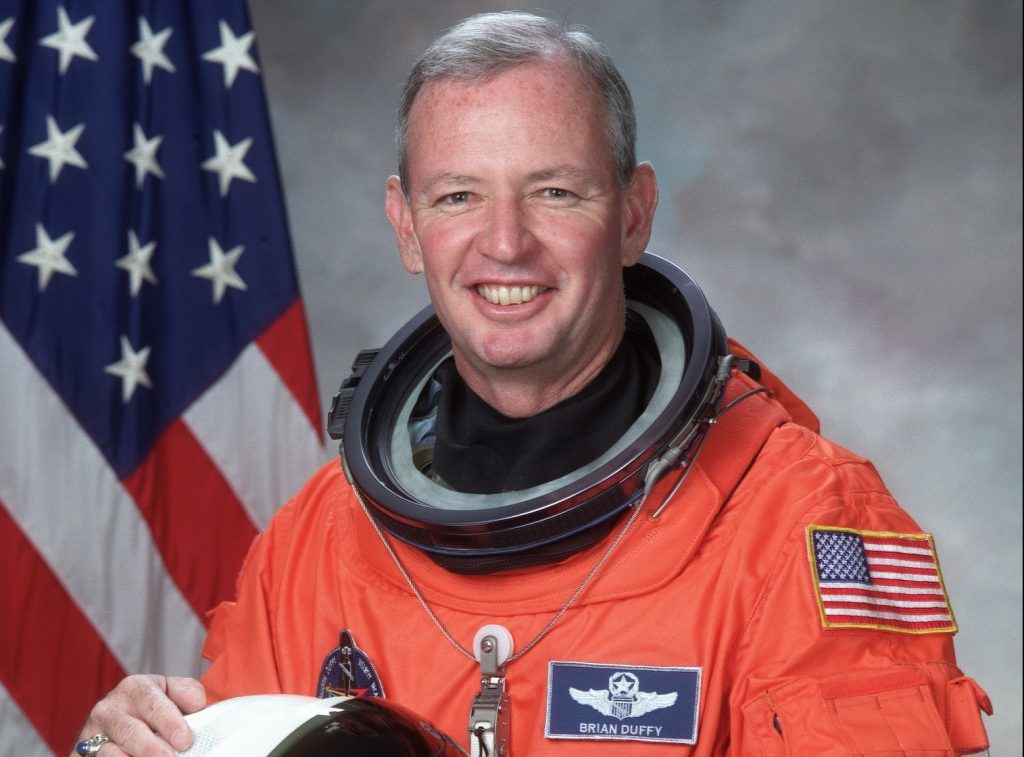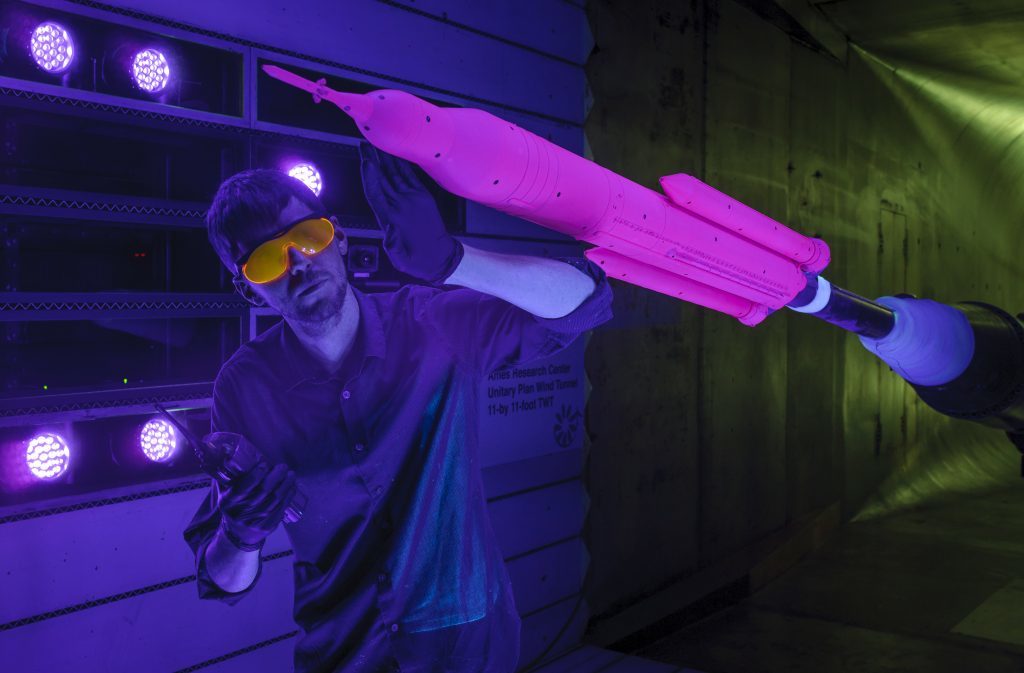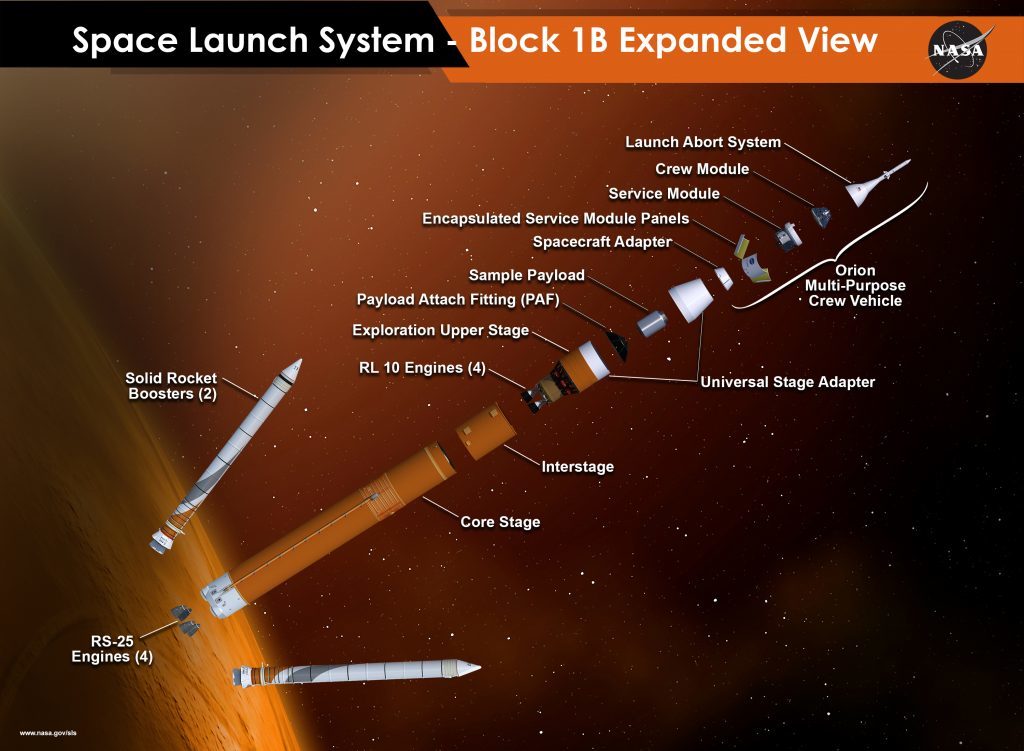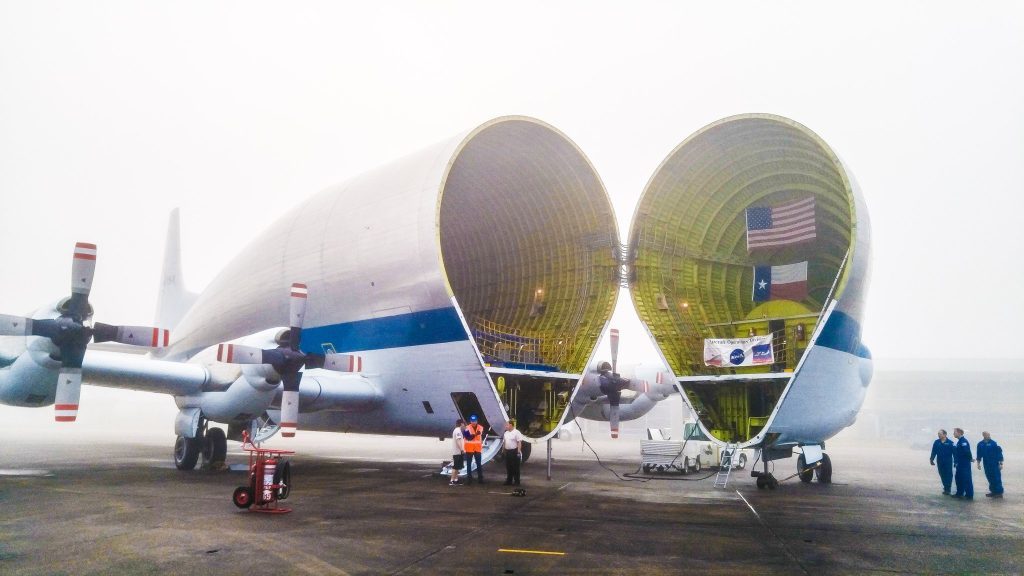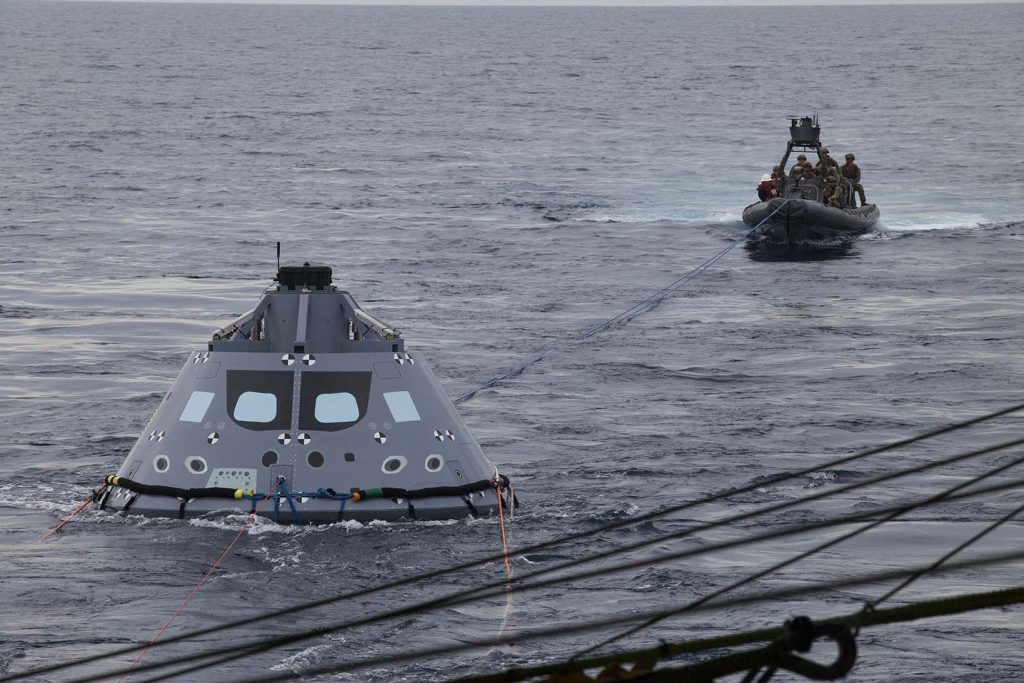Michael Alexander meets former NASA astronaut Brian Duffy who is helping to build the next generation of spacecraft – and encouraging more Scottish youngsters to pursue a career in science and technology.
When the American spaceflight company SpaceX announced last month that it will fly two private citizens on a trip around the Moon in 2018, it raised the question of when space tourism might be an option for the rest of us.
But while recreational space travel is still at the very early stages of development, former NASA astronaut and Kennedy Space Center ambassador Brian Duffy is in no doubt that it is “the way of the future”.
The pilot and commander of four space shuttle missions, who has been working on the next generation of NASA spacecraft – Orion – is confident that people will eventually take holidays to the Moon.
And he sees no reason why, despite the technological challenges, the human race cannot go on to build permanent colonies on Mars.
“One day we’ll colonise the Moon, and people will be taking holidays in hotels on the Moon,” said Mr Duffy in an interview with The Courier in Glasgow.
“Eventually we are talking about going to Mars. That’s a tougher holiday! Six months each way.
“The closest Mars ever is to Earth is 20 million miles. In all of my four missions I haven’t flown 20 million miles!
“But I’m quite optimistic. We are well down the road right now to having the capability to send people to where humans have never been before. Going back to the Moon would almost be easy.
“There’s also serious talk about going to Europa which is one of the moons of Jupiter,” he added.
“Europa has an ice exterior but we believe it has a liquid interior ocean beneath the ice. It’s very possible that in that water we are going to find signs of life outside of Earth.”
Mr Duffy is no stranger to Scotland which he describes as one of his “favourite places”.
Descended from Irish stock, the American has made several trips to play golf in St Andrews where he now co-owns a holiday home.
The purpose of his latest trip, however, has been to help inspire the next generation of space explorers and to promote the attractions at the Kennedy Space Center in Florida.
As the space programme becomes increasingly international, the 63-year-old wants more Scottish school children to consider a career in science and technology – because the opportunities, he says, are only going to grow.
“What I find is that children all over the world are interested in the space programme – but somehow they don’t think they can ever be part of it,” he said.
“We want to let them know that if they want to do it they can be part of the space programme.
“It’s more and more an international programme – particularly as we go forward.
“A perfect example is Tim Peake flying on the international space station (ISS).
“I’m happy I’m me, but when I visit schools I tell kids that ‘I often wish I was you’ because of all you are going to get to see. There will be a lot of opportunities and it’s starting right now!”
Born in Boston, Massachusetts, Mr Duffy was at high school when the space race intensified during the 1960s.
Inspired to become an air force pilot while growing up next to a naval air station, he graduated from the US Air Force Academy with a degree in mathematics, going on to fly the “hottest fighter aircraft of the time” – the F4 – and rising to the rank of Colonel.
It was while flying as a US Air Force test pilot in 1985, however, that he successfully applied to NASA’s space shuttle pilot training programme.
Following a delay which resulted from the Challenger space shuttle disaster in January 1986, he flew his first shuttle mission in spring 1992 aboard the Atlantis – an orbiter which is, aptly, now on display at the Kennedy Space Center where he gives talks.
https://www.youtube.com/watch?v=JZndxzaNLoI
Mr Duffy said there was “no comparison” between flying the shuttle and a jet fighter given that the now retired shuttle only acts like an aircraft for the last 10 minutes of an entire mission.
His experience of both, however, has been invaluable while helping develop NASA’s Project Orion – the spacecraft that is being built to take humans farther than they’ve ever gone before.
It will launch on NASA’s new heavy-lift rocket, the Space Launch System, which is now less than two years away from its first test flight and will make it possible to lift the type of heavy loads that would be necessary if colonies are to be built on other planets.
Mr Duffy says there remains “nothing routine” about space travel.
“When you were out there on the launch pad sitting on top of this big bomb, and people are telling me the press are not going to cover your launch because it’s so routine, I’m like ‘this doesn’t feel routine!’” laughed the former astronaut.
Indeed, his powers of decision making were tested on his last mission when the on-board radar failed before rendezvousing with the ISS. He had to make the first ever manual dock in the history of the space shuttle programme – “firing the aft jets like they’ve never been fired before” to get the 100 tonne shuttle into the right position with the ISS.
He is excited, however, about what lies ahead.
He’s also “very optimistic” about the role US President Donald Trump’s administration will play in re-launching America’s space ambitions.
He added: “I’m very optimistic with what he (Trump) is going to do.
“We’ll find out when he submits his budget to Congress later in the month.
“He hasn’t spoken much publicly.
“He’s got other things to worry about!
“Having a robust and even more robust space programme than we have right now certainly chimes with his theme of ‘making America great again’.
“I think what he means is America needs to be in a leadership role.
“There’s no reason why we can’t be in a leadership role in human space exploration.
“Time will tell.”
*Kennedy Space Centre Visitor Complex is only 45 minutes from Orlando, Florida. Gates open at 9am daily. Admission is $50 + tax for adults and $40 + tax for children ages 3-11. New attraction Heroes & Legends, featuring the U.S. Astronaut Hall of Fame®, opened on 11 November 2016. For more information, call +1 877 313 2610 or visit www.KennedySpaceCenter.com.
